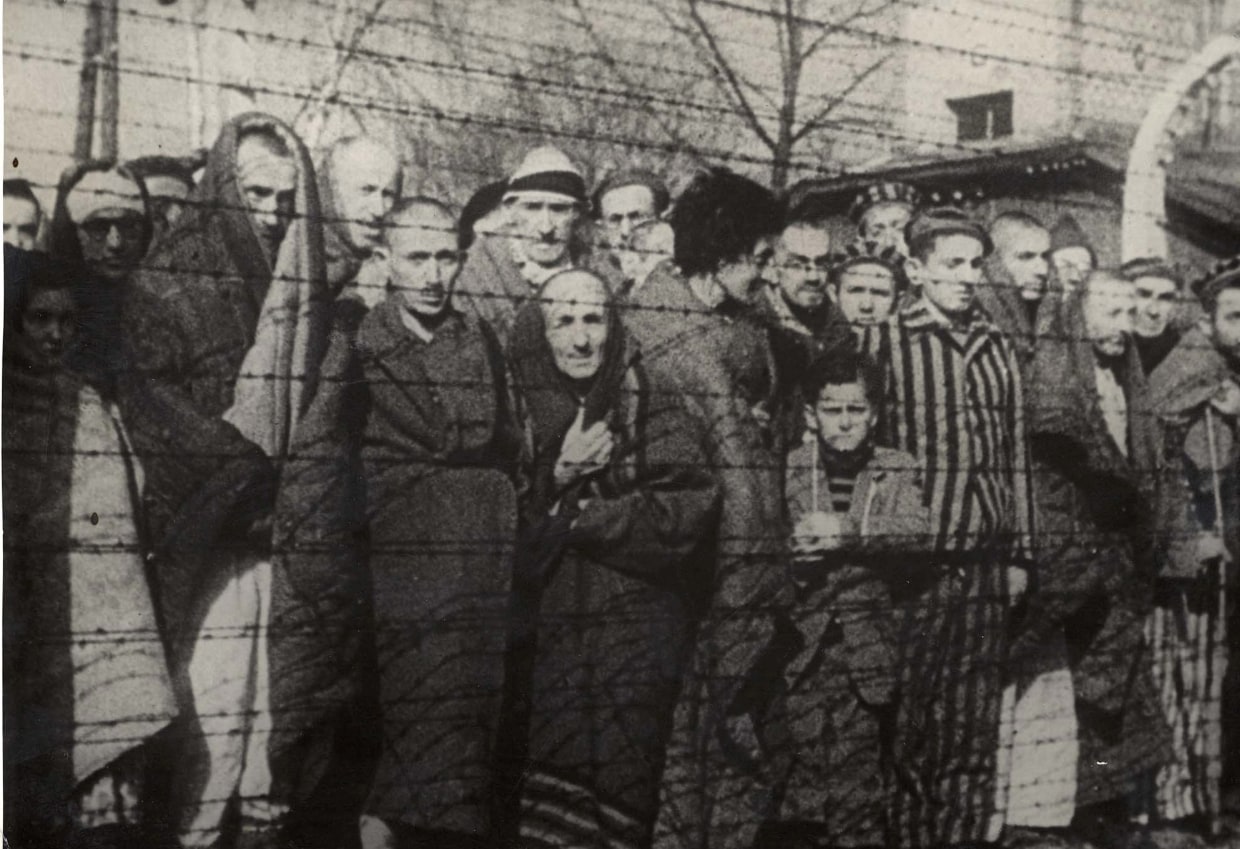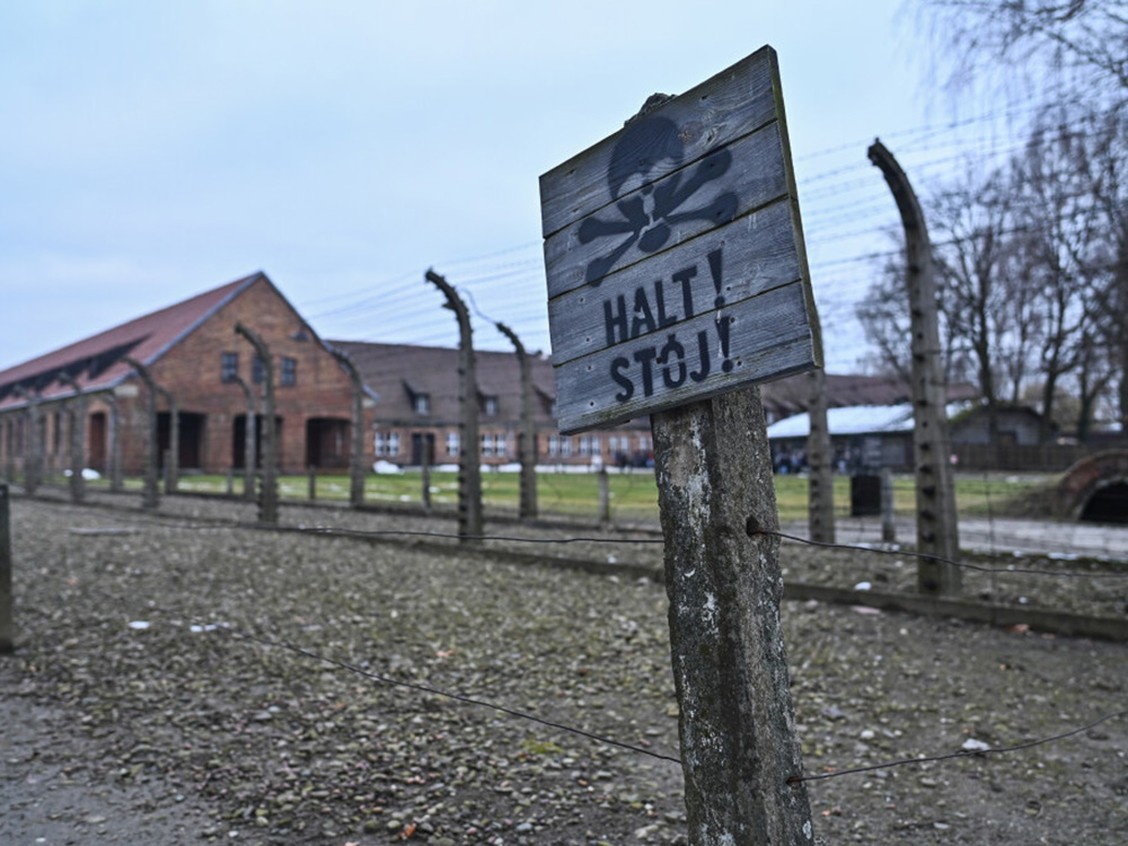Holocaust Denialism, Skepticism in Canada
"The increase in agreement that 'the Holocaust is exaggerated' from 5 to 9% in the space of just a few months may be regarded by some as modest but it is indicative of a worrisome trend, especially amongst millennials.""It raises serious questions as to how and by whom such skepticism about the Holocaust is being driven.""[This] is all the more troubling given the increased opportunities for Gen Zrs and Millennials to readily find the facts through schools, museums, books and film.""It suggests that the increasing tendency to acquire information via the internet/social media platforms and to how and by whom it gets interpreted is contributing to rising misinformation."Jack Jedwab, president, Association for Canadian Studies
 |
| In this Jan. 27, 2020 file photo, writing reading in German "Work Sets You Free" is seen on the gate of the Auschwitz Nazi death camp in Oswiecim, Poland. (AP Photo/Markus Schreiber, file) |
Holocaust skepticism is rising in Canada, most particularly among those who are in the young-age categories, as highlighted by a newly published national poll, conduced by Leger for the Association for Canadian Studies, at the very time of rising antisemitism rates in the wake of the terrorist attack on Israel of October 7, followed by the Jewish State's unleashing of a war in Gaza to unseat the Hamas terrorist group which has threatened to repeat October 7's savagery and death toll until its goal of destroying Israel and annihilating Jews has been accomplished.
In a poll dated November 2018 it was found that 17 percent of Canadians believed fewer than six million Jews had perished during the Holocaust years, but by May of 2024 that number had risen to 24 percent. Pollsters found in February that five percent of Canadians believed the Holocaust to have been exaggerated, but by May that number had risen to nine percent; a view that more than doubled from four to 11 percent among those aged 45 to 54.
In the more recent poll between the ages of 25 and 34, Canadians were likely at 31 percent to doubt the numbers reflecting the Holocaust's official death toll. Slightly over one-fifth of those polled between the age of 35 and up held inaccurate views relating to the death toll of the Third Reich's 'Final Solution'. Snapchat and Telegram users were likeliest to hold inaccurate beliefs of the number of Jews that perished in the Holocaust. Among Telegram users close to 52 percent were convinced fewer than six million Jews were annihilated by the Nazi regime.
"I wouldn’t necessarily use the word denial as it doesn’t suggest that they think the Holocaust didn’t take place – though some of the group surely subscribe to that – it’s more that they minimize or trivialize the Holocaust, by questioning its scale and/or other aspects of it."Jack Jedwab
Those who used the social media platform known as X were likeliest to accurately identify how many Jews died in the Holocaust, at nearly 67 percent, followed by LinkedIn users at 50 percent and 48 percent of YouTube users, along with 47 percent of TikTok and Facebook users, and 46 percent of Instagram who agreed that six million Jews had perished in the Holocaust.
 |
Of those poll respondents who believe numbers who died in the Holocaust has been exaggerated it was seen that they represent those most likely not to know what the correct death count amounted to. Among them, 26 percent believe that between one and three million Jews perished, while 50 percent of those who claim the Holocaust has not been exaggerated identified six million as the accurate number of Jews killed in the Holocaust.
Of those holding "very negative" views of Jews, 36 percent believe the Holocaust has been exaggerated in comparison to 5 percent who believe it has been exaggerated, but hold "very positive" views of Jews generally. Of those with "very negative" views of Jews, 37 percent accurately identified the death toll, while 64 percent of respondents with "very positive" views knew the correct numbers.
Finally, those Canadians polled who had never had contact with anyone Jewish were likelier to believe the Holocaust to have been exaggerated, while 20 percent who claimed "never" to have interacted with anyone Jewish felt the Holocaust is exaggerated, while 94 percent who "often" interacted with Jews did not believe the exaggeration of the Holocaust.
 |
"It is likely that the increase in Holocaust skepticism is attributable to some politically motivated influencers seeking to diminish or distort the Holocaust and/or describing it as one historic injustice amongst others.""Skeptics were far more trusting of information when it goes viral and when the source has a large following. This suggests that there is a growing risk of exposure to misinformation and/or outright revisionism amongst what appear to be a rising number of skeptics."Jack Jedwab, Association for Canadian Studies
Labels: Association for Canadian Studies, Darkly Sinister Programming, Holocaust Skepticism, Leger Poll, Social Media Influences

0 Comments:
Post a Comment
<< Home